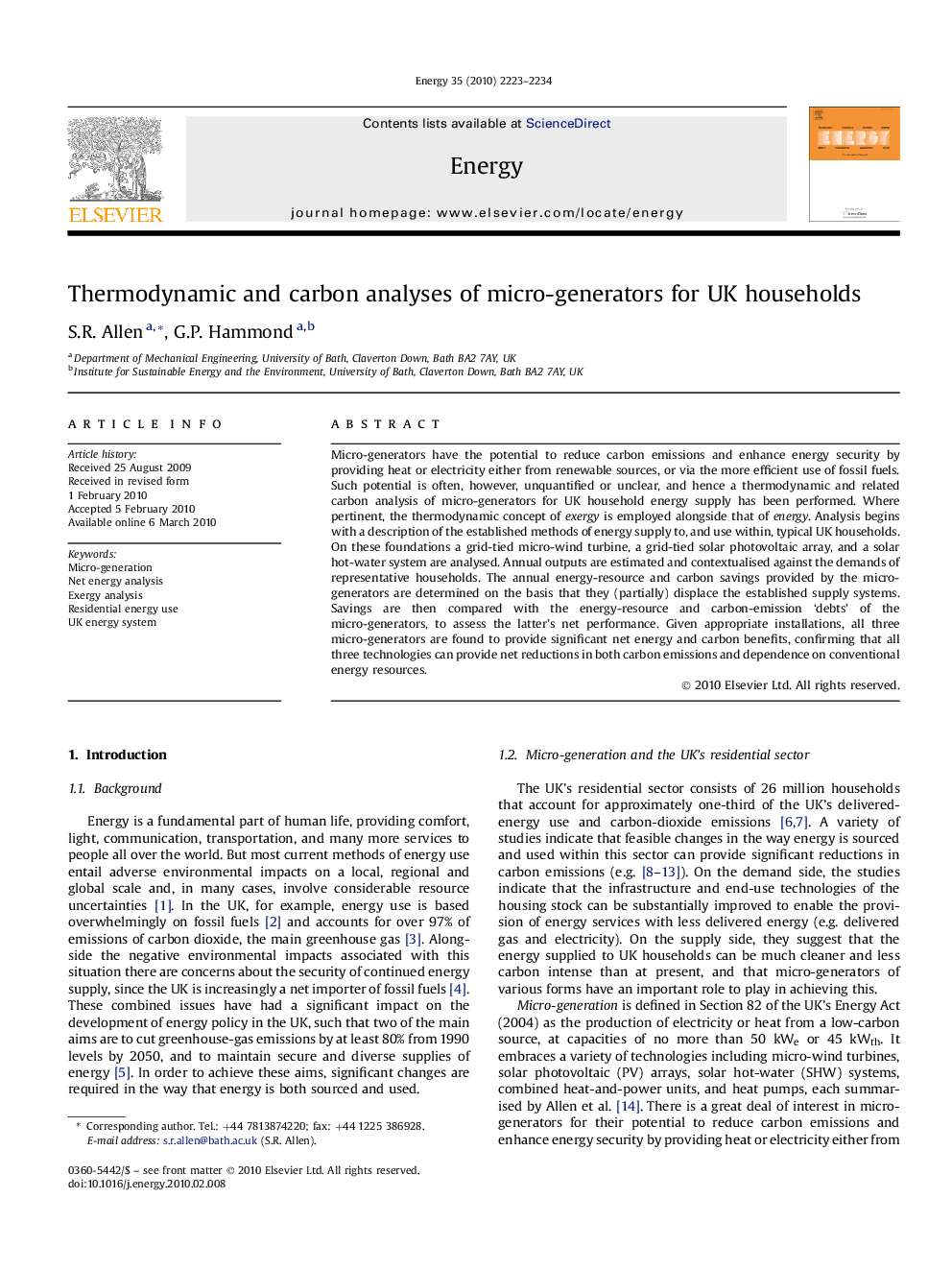| Article ID | Journal | Published Year | Pages | File Type |
|---|---|---|---|---|
| 1735550 | Energy | 2010 | 12 Pages |
Micro-generators have the potential to reduce carbon emissions and enhance energy security by providing heat or electricity either from renewable sources, or via the more efficient use of fossil fuels. Such potential is often, however, unquantified or unclear, and hence a thermodynamic and related carbon analysis of micro-generators for UK household energy supply has been performed. Where pertinent, the thermodynamic concept of exergy is employed alongside that of energy. Analysis begins with a description of the established methods of energy supply to, and use within, typical UK households. On these foundations a grid-tied micro-wind turbine, a grid-tied solar photovoltaic array, and a solar hot-water system are analysed. Annual outputs are estimated and contextualised against the demands of representative households. The annual energy-resource and carbon savings provided by the micro-generators are determined on the basis that they (partially) displace the established supply systems. Savings are then compared with the energy-resource and carbon-emission ‘debts’ of the micro-generators, to assess the latter's net performance. Given appropriate installations, all three micro-generators are found to provide significant net energy and carbon benefits, confirming that all three technologies can provide net reductions in both carbon emissions and dependence on conventional energy resources.
